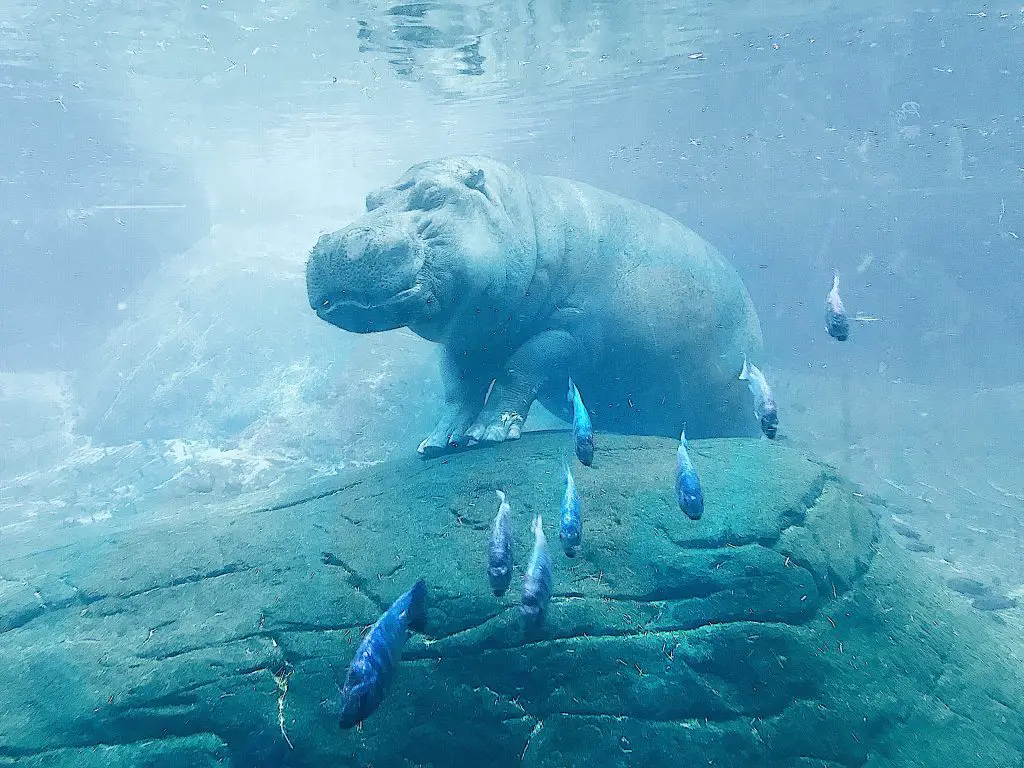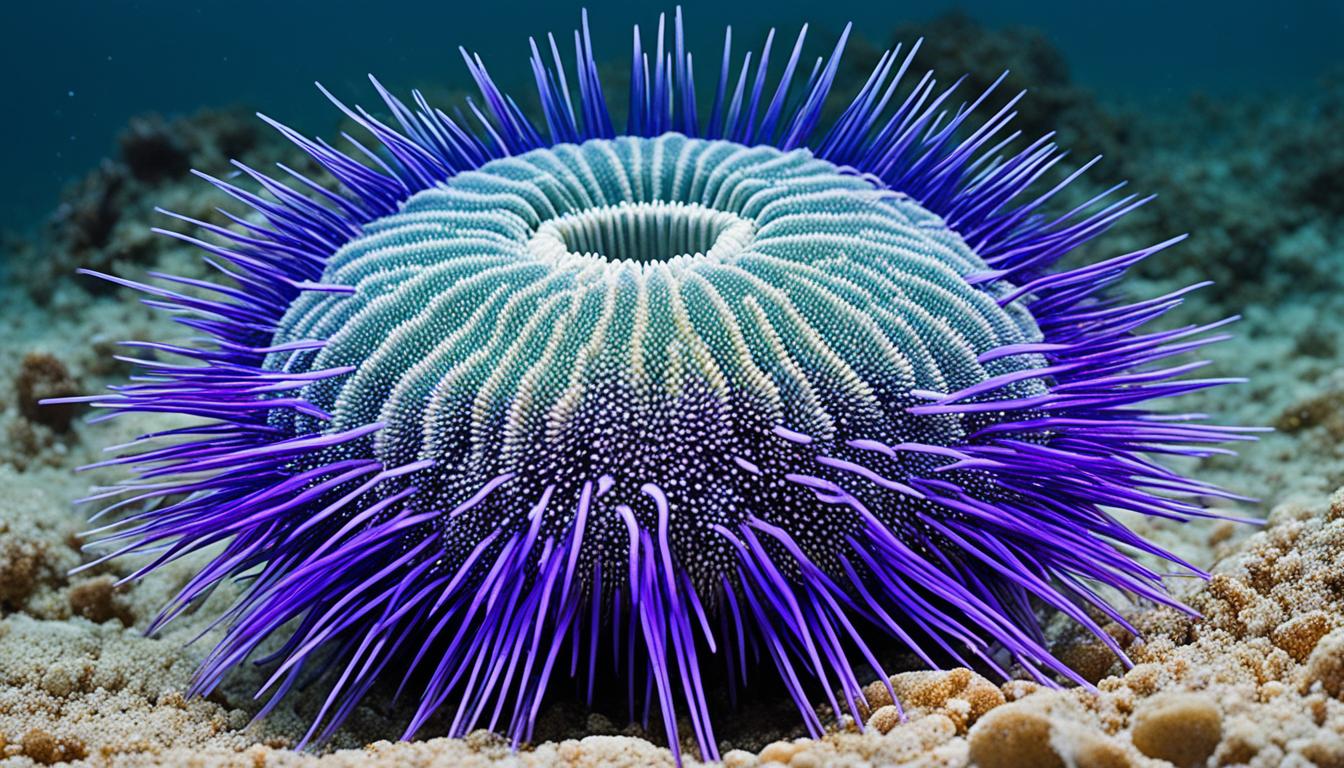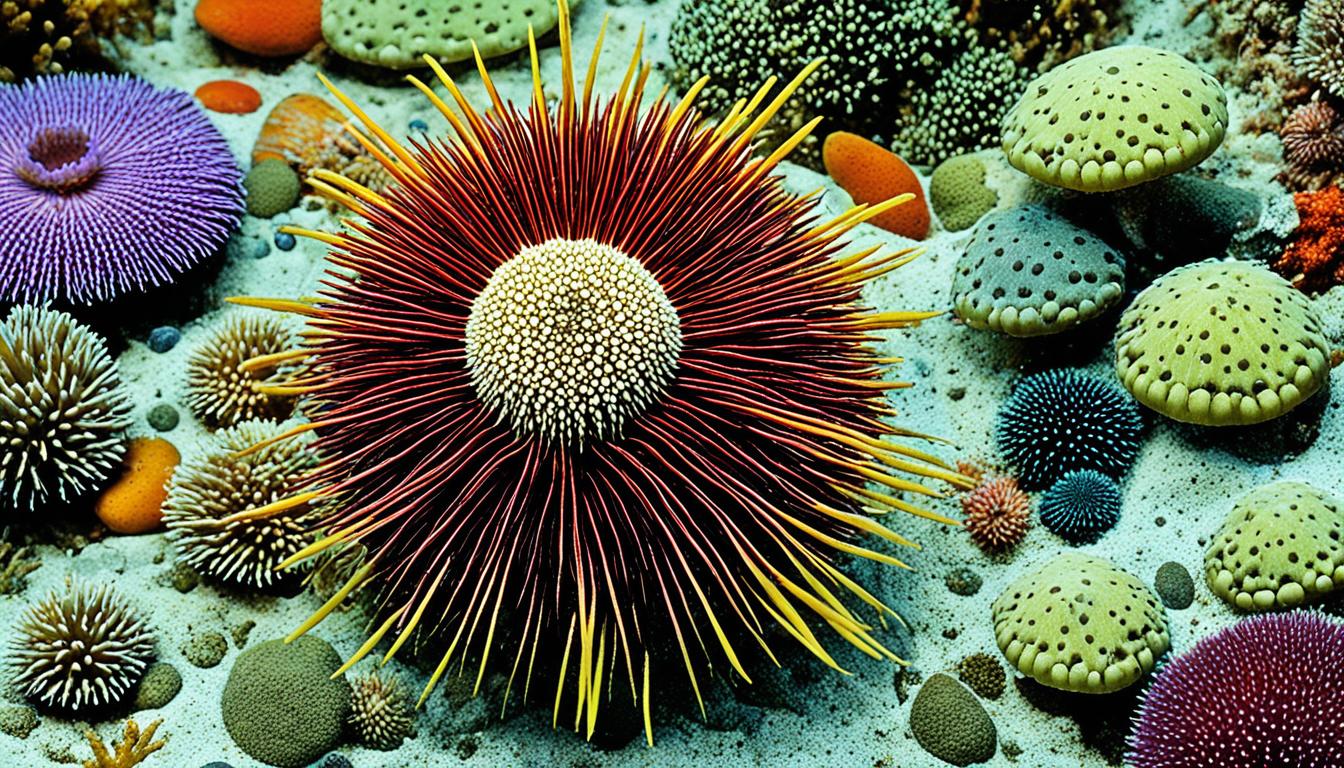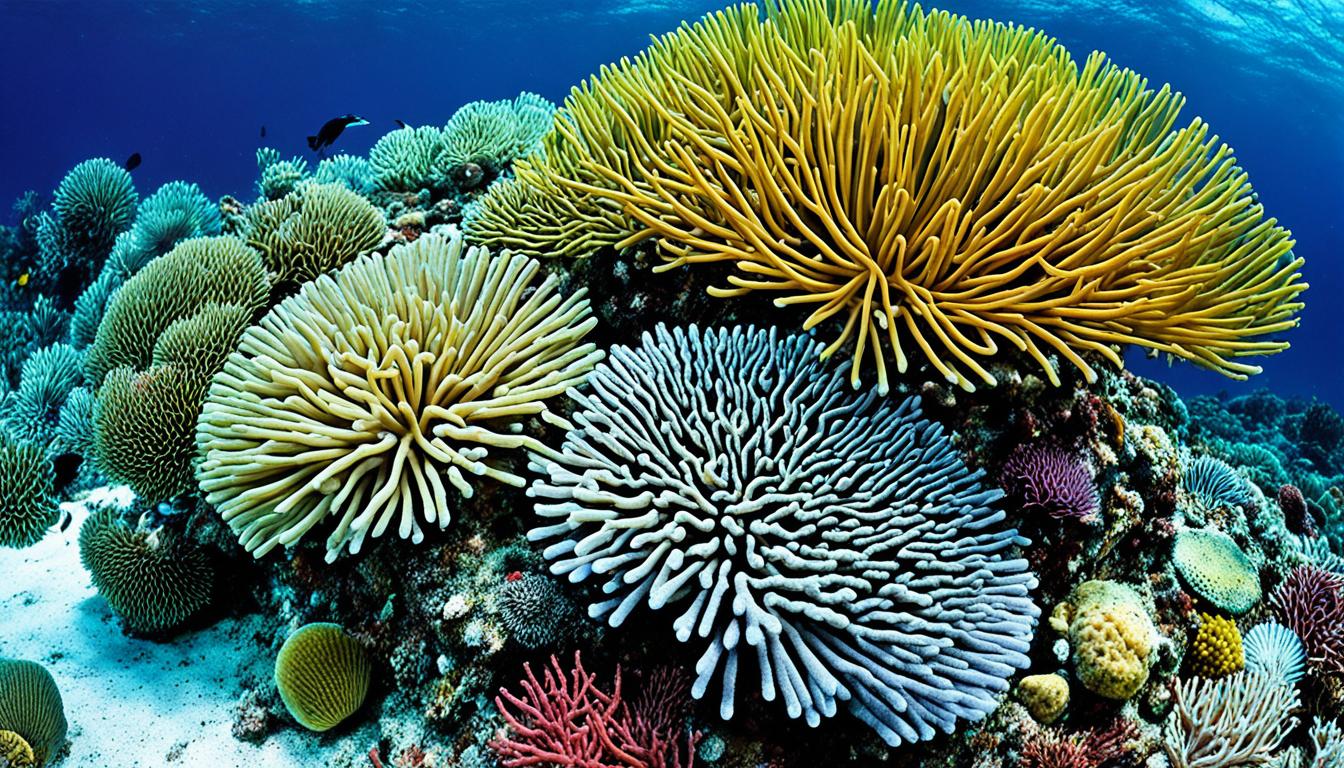Underwater, hippos can leap and bound around like elegant ballerinas – jumping off the river bed and up into the air. However, on land, they can’t jump at all.

How High Can Hippos Jump?
On land, a hippo can’t jump at all. Whether they are the giant muscular Common Hippo (Hippopotamus amphibius) or the much smaller Pygmy Hippo (Choeropsis liberiensis), they can’t leap up in the air over any hurdles.
Hippos generally run at a trot – always with two feet on the ground. However, they can run at a gallop with all 4 feet off the ground at the same time – but they can’t perform a leap during this speedy interlude. They ‘charge’ more than actually run – so are just moving fast rather than actually being agile about it. Changing direction fast is also off the cards (which is why one way to evade a hippo attack is by running in zig zags).
Hippos can climb up steep surfaces along riverbanks and can step over low obstacles while running, but jumping just isn’t in their biology. The muscle ratios just won’t allow for such anti-gravity propulsion.
In the water though – where gravity has less of an effect – hippos can leap about without any restrictions. By pushing off the riverbed, they can bound up to the surface for air without any effort at all. Watching a hippo underwater is beautiful. They have the grace of an elegant bird – moving about in slow motion as though they are weightless.
How Fast Can A Hippo Run?
On land, hippos can easily clock up to around 30km/h (19mph) on a charge. They can’t sustain this for long – but it is long enough to catch up with even the fastest human. In a straight line on flat ground – they can catch up to most animals – and many unsuspecting tourists (average speed of only 8.8km/h (5.5mph).
Being cantankerous too doesn’t help. Whatever annoys or startles them – including lions, crocodiles, or other hippos – they will just attack. In fact, the hippos are one of the most dangerous large animals in the world (after humans and crocodiles) – killing around 500 people a year (bears in the U.S. kill only around 1 person a year as a comparison).
Basically, unless you can remember to run in zig zags, and find something to hide behind, you are not going to outrun an angry hippo!
How Far Can A Hippo Swim?
Even though hippos spend most of their lives in the water – they don’t actually swim swim – not like dolphins. They just use the water as a place to live – and they don’t even feed in the water either.
Water for a hippo is just a place for them to hang out in the hottest part of the day – until they can go feeding again. It is that grassland habitat that they need to live close to, rather than the specific area of water.
Also, they tend to want to rest and sleep while they are in the water – not play or go off on long journeys. Hippos are very social animals and so need to stay close by to their ‘bloat’ so their position in society is maintained. Outsiders often don’t do so well when joining a new group – so no point heading off somewhere else without a really good reason.
And finally – only the small print really: hippos can’t technically swim.
In the true sense of the word, hippos can’t actually maintain a floating swim where they can adjust their level in the water while moving through it. They don’t float and can’t doggy paddle, so they generally just sink. They can move through the water by leaping and bounding off the bottom of a river or lake – and do so very well indeed. But they aren’t actually swimming as such.
Do Hippos Sleep in the Water?
Hippos are known to be semi-aquatic creatures and spend a significant amount of time in water. So, one might wonder, where hippos sleep? Interestingly, hippos prefer to sleep in the water. They are capable of effortlessly dozing off while floating or partially submerged, relying on their natural buoyancy to stay afloat. This unique sleeping habit not only provides them with a peaceful slumber but also offers protection against predators.
How Long Can A Hippo Hold Their Breath?
Because they are semi-aquatic – they have evolved to be able to stay underwater for up to 5 minutes at a time without having to resurface. Perfect for snoozing. Baby hippos can’t quite last that long, but often stand on mom’s back to make it easier to reach the surface each time.
With their nostrils, eyes and ears all high atop their heads – hippos are already better adapted to living in water than most other mammals. However, with their highly efficient respiratory system – they can really relax in their watery home. Knowing they won’t ever drown, even in deep water, allows them to be the masters of this watery habitat.










